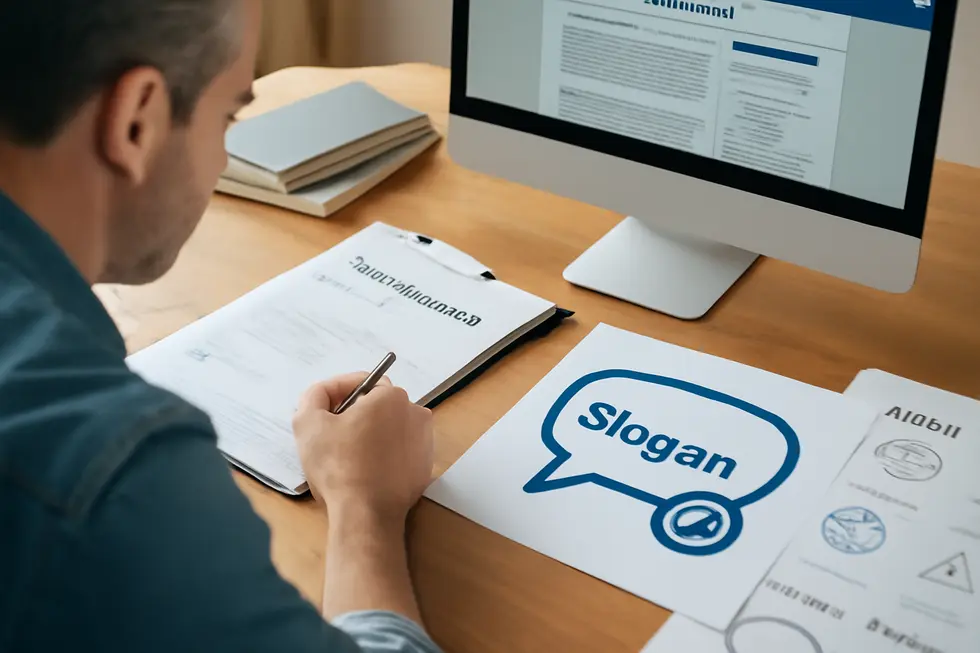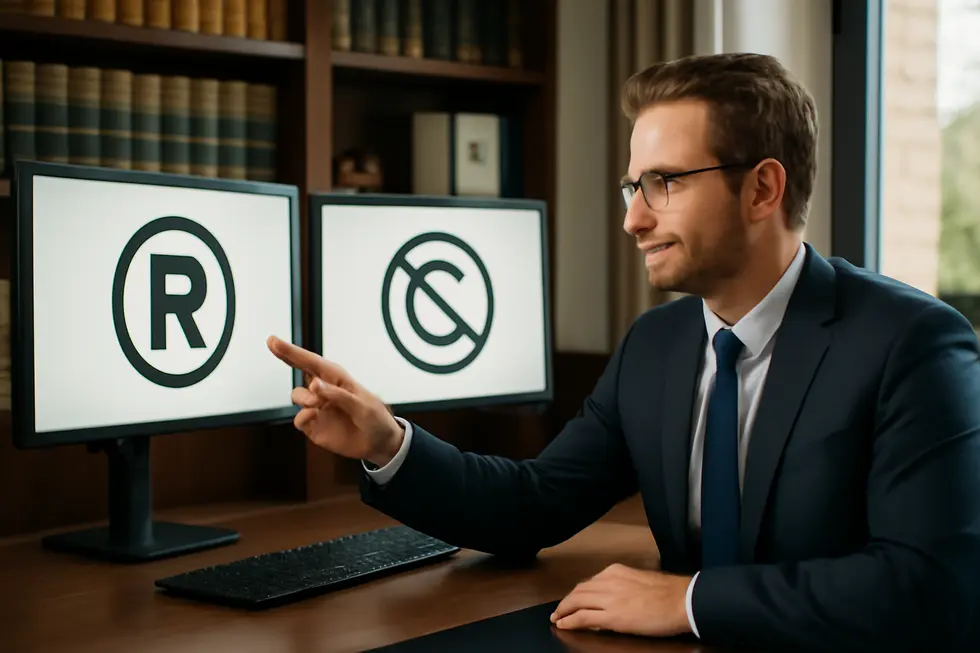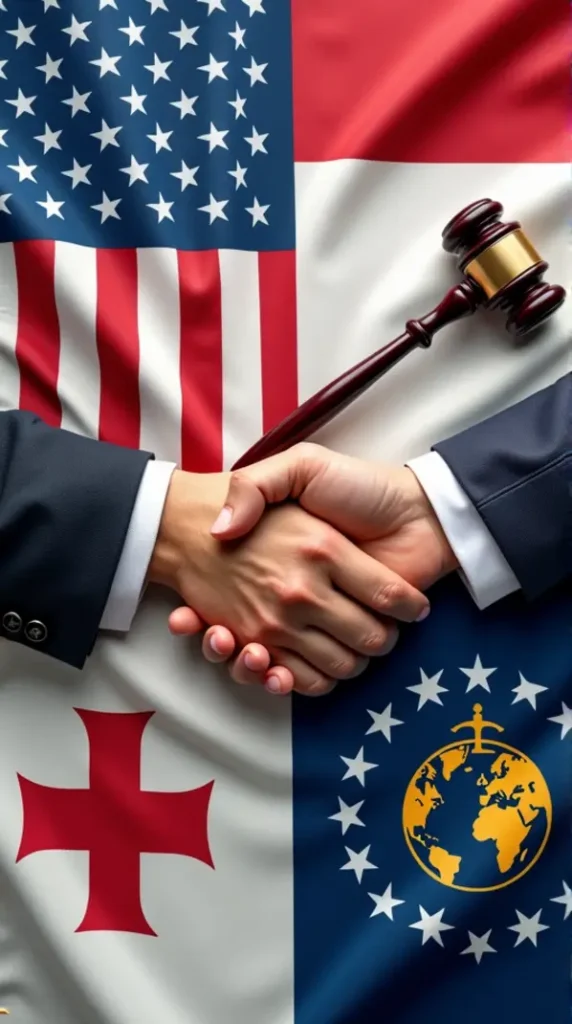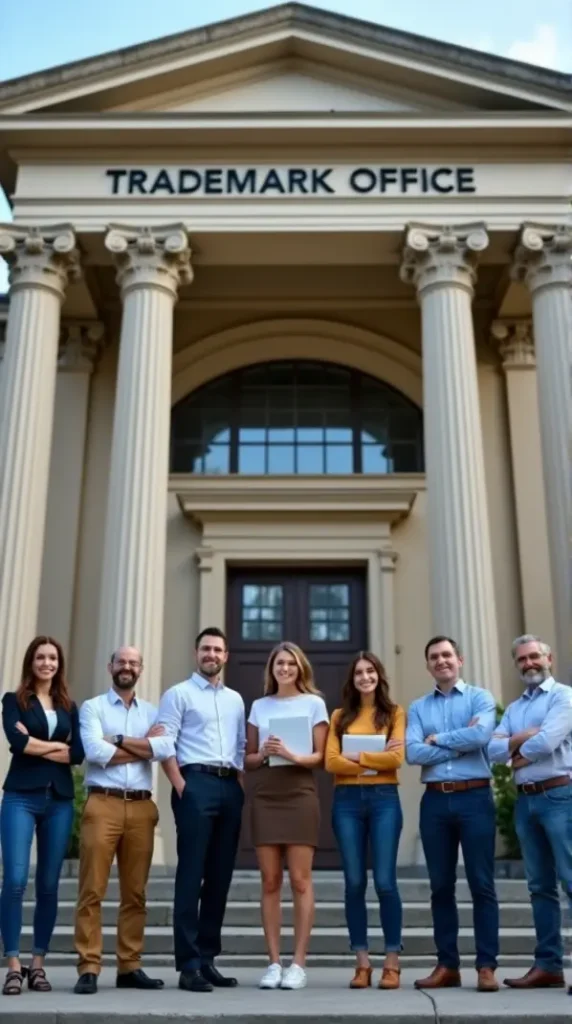Introduction
Navigating the protection of your business’s unique phrases or slogans is essential for brand identity and legal security. While many business owners assume copyright automatically shields their catchy phrases, the reality is more nuanced. Copyright law does not extend protection to short phrases or slogans because they lack the originality and fixation required under copyright statutes. Instead, trademark law serves as the primary mechanism to protect phrases used commercially as brand identifiers. This article unpacks the legal foundations explaining why phrases can’t be copyrighted, explores how trademarks provide protection instead, and offers practical insights on what this means for business owners aiming to safeguard their brand assets effectively.
Tables of Contents
Chapter 1: Understanding Why You Cannot Copyright a Phrase: Legal Foundations and Limitations
- Why Copyright Law Excludes Short Phrases: The Legal Basis Behind Non-Protection of Phrases and Slogans
- Balancing Language Freedom and Economic Innovation: The Broader Impact of Copyright’s Exclusion of Short Phrases
- Why Trademark Law, Not Copyright, Protects Phrases and Slogans as Brand Identifiers
Chapter 2: How Can You Copyright a Phrase? The Role of Trademark Law in Phrase Protection
- Navigating the Legal Divide: Why Copyright Doesn’t Cover Phrases but Trademark Law Does
- The Power and Limits of Trademark Law in Safeguarding Phrases as Brand Identity
- Strategic Brand Defense: Practical Trademark Protections for Business Phrases
Chapter 3: Practical Implications of Can You Copyright a Phrase: Business and Legal Considerations
- Leveraging Trademark Protection to Strengthen Business Identity Beyond Copyright Limits
- Navigating Copyright’s Limits and Legal Risks When Protecting Business Phrases
- Navigating Licensing Clarity and Combating Copyright Trolling in Phrase Protection
Chapter 1: Understanding Why You Cannot Copyright a Phrase: Legal Foundations and Limitations

1. Why Copyright Law Excludes Short Phrases: The Legal Basis Behind Non-Protection of Phrases and Slogans
Copyright law distinctly excludes short phrases, slogans, titles, and names from its scope of protection. This exclusion stems from a foundational legal principle: copyright safeguards the expression of ideas rather than the ideas or brief expressions themselves. Since short phrases and slogans are often too minimal and lack sufficient originality, they do not meet the threshold required for copyright protection. Copyright requires a work to be an original creation fixed in a tangible medium, encompassing forms such as books, music, paintings, or films. In contrast, brief expressions like phrases are considered common language tools, insufficiently creative to warrant exclusive rights.
The U.S. Copyright Office explicitly clarifies that short phrases, titles, and slogans do not qualify for copyright because they fail to demonstrate the creativity and originality necessary to merit legal protection. These elements often serve as identifiers or shorthand communication rather than elaborate creative works. Protecting such brief expressions under copyright could unduly restrict the free use of language, which is essential for daily communication and cultural exchange.
Instead, phrases and slogans find legal protection primarily through trademark law when they function as brand identifiers in commerce. Trademark safeguards help distinguish goods or services by protecting distinctive names, logos, or slogans used in business. This legal distinction reinforces that copyright focuses on protecting substantive creative content, while trademark law governs commercial identifiers.
Understanding this legal foundation is crucial for creators and businesses aiming to protect their intellectual property. While original creative works automatically gain copyright protection once fixed, short phrases must instead be protected through other legal avenues like trademarks. For a more detailed overview of how copyright applies to creative works, see the U.S. Copyright Office Circular 33 and explore the differences between trademarks and copyrights in intellectual property law at trademark protection basics.
2. Balancing Language Freedom and Economic Innovation: The Broader Impact of Copyright’s Exclusion of Short Phrases
Copyright law intentionally excludes short phrases and common expressions to preserve a critical balance between protecting creativity and maintaining open access to language. Since copyright protects “original works of authorship fixed in a tangible medium,” it does not extend to short phrases, which lack the necessary originality and fixation. This legal limitation reflects broader economic and societal priorities.
Economically, barring copyright on phrases prevents the monopolization of everyday language essential for commerce and competition. If short phrases were subject to exclusive ownership, businesses and individuals might face restrictive barriers when communicating marketing messages, slogans, or basic descriptions. Instead, trademark law governs distinctive brand identifiers like slogans used in commerce, while excluding generic phrases to minimize consumer confusion and protect competitive markets. This fosters an environment where innovation and fair competition thrive, as no single entity can claim proprietary control over ordinary language necessary for trade.
From a societal perspective, the exclusion supports freedom of expression and the unhindered flow of information. Allowing copyright claims on short phrases could stifle public discourse, education, criticism, and creativity by limiting access to common expressions. Copyright’s underlying goal balances protecting creators with maximizing public benefit, encouraging new works while leaving fundamental language tools free for all. This approach aligns with fair use principles, which allow limited use of copyrighted content for commentary and research.
By maintaining these boundaries, the law nurtures both creative works—such as books, music, and art—and open communication that benefits society and the economy alike. For those interested in the nuanced differences between trademark and copyright protections relating to phrases and slogans, the resource at Corning Library’s Copyright Guide offers a detailed exploration.
3. Why Trademark Law, Not Copyright, Protects Phrases and Slogans as Brand Identifiers
Copyright law protects original creative works like books, music, and artwork that are fixed in a tangible form. However, it explicitly excludes short phrases, slogans, or titles because these do not meet the creativity and originality standards required. A phrase simply lacks enough expressive content to qualify for copyright protection, even though the same phrase could be an essential element of branding. Instead, trademark law serves as the primary legal mechanism to safeguard phrases used as identifiers in commerce.
Trademarks protect names, logos, slogans, and other elements that distinguish one business’s goods or services from another’s. To qualify, a phrase must function as a source identifier and be distinctive enough to prevent consumer confusion. Generic or common phrases typically cannot be registered because trademark law seeks to avoid granting exclusive rights over everyday language. Registration of a trademark is essential to obtain nationwide protection and enforce rights effectively.
Unlike copyright, which is automatic upon creation and fixation, trademarks require an application process with the trademark office. The protection afforded by trademarks can be renewed indefinitely, so long as the mark remains in use and the registration is maintained. This contrasts with copyright’s limited term, usually life of the author plus 60 years.
Understanding this distinction clarifies why individuals cannot rely on copyright to protect short phrases or slogans they create. Instead, they must pursue trademark registration if the phrase is intended to identify and promote a product or service in commerce. For further insights on how trademarks protect your brand, see this comprehensive guide to legally protected brand trademarks.
For authoritative details on these distinctions, consult resources like the University of Texas copyright guide, which clearly explains why copyright excludes short phrases and how trademarks fill that protection gap.
Chapter 2: How Can You Copyright a Phrase? The Role of Trademark Law in Phrase Protection

1. Navigating the Legal Divide: Why Copyright Doesn’t Cover Phrases but Trademark Law Does
Copyright law fundamentally protects original creative works expressed in a tangible form, such as books, music, and artwork. However, this protection does not extend to short phrases or slogans because they lack the required originality and fixation. A phrase on its own is generally too brief and commonplace to qualify as an original work of authorship. Instead, phrases, especially when used to identify a product, service, or brand, fall under the purview of trademark law.
Trademark law is designed to safeguard elements that distinguish a business’s goods or services in the marketplace. This includes names, logos, and notably, slogans or taglines that serve as brand identifiers. Unlike copyright, trademark protection focuses on preventing consumer confusion and unfair competition by granting exclusive rights to distinctive marks tied to a specific source. To qualify for trademark protection, a phrase must be distinctive rather than generic or purely descriptive. Common or widely used phrases fail this test, as trademark law aims to maintain fair use of everyday language and to avoid granting monopolies on ordinary words.
It is also important to understand that trademark rights can last indefinitely, provided the owner continuously uses and renews the mark. This contrasts with copyright, which has a fixed term. A phrase associated strongly and uniquely with a brand can thus achieve legal protection through successful trademark registration, helping the owner prevent others from using the phrase commercially in a confusingly similar way.
Before securing such protection, conducting a thorough trademark search minimizes the risk of infringing on existing rights. This comprehensive difference between copyright and trademark underscores why phrases are beyond copyright’s reach but remain protectable under trademark law when functioning as brand identifiers. For more insights on how trademark law can safeguard your business identifiers, see legally protected brand trademark. An excellent external resource for understanding these distinctions is the University of Texas copyright guide.
2. The Power and Limits of Trademark Law in Safeguarding Phrases as Brand Identity
**Trademark law specifically protects phrases that serve as distinctive identifiers of goods or services, functioning fundamentally as brand signals in commerce. Unlike copyright, which safeguards creative works such as books or music, trademark protection targets the use of words or slogans to prevent consumer confusion about product origin. To qualify, a phrase must be more than generic or merely descriptive—it needs to possess distinctiveness, either inherently or through acquiring secondary meaning in the marketplace.
Registration of a trademark with the U.S. Patent and Trademark Office (USPTO) formally establishes a brand owner’s exclusive rights to the phrase within designated goods or service categories and defined geographic regions. This registration offers legal tools to prevent competitors from adopting confusingly similar phrases that could dilute the brand or mislead consumers. However, trademarks do not grant protection over the phrase as a creative work but solely over its role as a commercial identifier.
The scope of trademark protection has inherent limits. Generic or common phrases cannot be trademarked unless they develop distinctiveness through significant market recognition. Additionally, rights apply only to the particular goods or services for which the trademark is registered and used, and only within the geographical areas where the mark is enforced. Trademark law also allows fair use in non-commercial contexts such as commentary, parody, or criticism, ensuring free expression remains protected.
This legal framework explains why copyright cannot protect short phrases or slogans: copyright requires originality and fixation in a tangible artistic or literary work, which phrases lack. Instead, trademark law offers businesses the mechanism to protect brand-related phrases, emphasizing their commercial, rather than creative, value. Understanding these nuances empowers creators and businesses to choose appropriate intellectual property strategies.
For a more detailed understanding of trademark protections for brand identifiers, see this comprehensive resource on legally protected brand trademarks. For external perspectives and clarifications on copyright exclusions, the University of Texas copyright guide offers valuable insights.
3. Strategic Brand Defense: Practical Trademark Protections for Business Phrases
For businesses aiming to protect distinctive phrases, especially slogans or catchphrases, trademark law is the essential tool rather than copyright. Since copyright law excludes short phrases, the practical step involves registering these phrases as trademarks to legally affirm ownership and prevent competitors from using similar identifiers in commerce. Early trademark registration not only secures priority rights but deters potential infringement through public records.
Applying appropriate trademark symbols like ™ for unregistered marks, and ® upon registration, signals to the marketplace the phrase’s protected status, discouraging unauthorized use. Beyond registration, companies must vigilantly monitor digital platforms and marketplaces to detect infringement quickly. Prompt enforcement through legal actions—such as injunctions or damages—preserves the brand’s value and reputation, reinforcing the phrase as a unique commercial asset.
Educating employees about intellectual property fundamentals is also critical; informed staff contribute to safeguarding the company’s branded expressions. In today’s dynamic digital environment where phrases can spread virally across social media and memes, businesses must also embrace technological solutions like AI-powered monitoring tools. Such innovations help track unauthorized uses globally, ensuring timely responses as intellectual property laws evolve alongside internet culture.
While copyright protects creative works like marketing content, trademarks remain the practical avenue for phrase protection because they safeguard the connection between a phrase and the business it identifies. This distinction enables companies to maintain control over phrases that are vital to brand recognition and competitive positioning.
For companies looking to deepen understanding and strengthen legal strategies, expert advice on proactive registration and enforcement can be found through specialized intellectual property law resources. More insights on brand protection and trademark essentials are available at brand trademark business protection.
Chapter 3: Practical Implications of Can You Copyright a Phrase: Business and Legal Considerations

1. Leveraging Trademark Protection to Strengthen Business Identity Beyond Copyright Limits
Trademark protection plays a pivotal role in business strategy, particularly when it comes to safeguarding phrases that represent a brand’s identity. Unlike copyright, which covers original creative works fixed in tangible form, trademark law specifically protects distinctive words, phrases, and symbols used to identify goods or services. This distinction is crucial for businesses seeking to secure exclusive rights over slogans or catchphrases, which cannot be copyrighted. Registering a phrase as a trademark grants legal authority to prevent others from using confusingly similar marks in commerce, thereby preserving brand integrity and avoiding marketplace confusion.
A robust brand protection strategy begins with identifying core intellectual property assets, including trademarks for names and slogans, copyrights for creative content, and patents for innovations. Because copyright protection automatically excludes short phrases or slogans, businesses must prioritize trademark registration to safeguard these assets effectively. Selecting distinctive, non-generic phrases improves the chances of successful registration and enforcement, as descriptive or common terms often face legal challenges.
Maintaining trademark strength requires ongoing monitoring of their usage online and in the marketplace. Tools such as Google Alerts and specialized IP monitoring software enable businesses to detect unauthorized or infringing use early, allowing prompt legal responses. Furthermore, as commerce increasingly spans international borders, companies need to consider global trademark protection frameworks. The Madrid Protocol offers streamlined multi-country registration, yet regional variations in trademark laws mean local legal expertise is indispensable when expanding globally.
Integrating trademark protection into a business model strengthens brand reputation, maintains competitive advantages, and mitigates legal risks associated with intellectual property infringement. For companies seeking detailed guidance on trademark registration and enforcement within brand protection, resources like this practical brand protection strategy provide valuable insights and actionable steps.
2. Navigating Copyright’s Limits and Legal Risks When Protecting Business Phrases
Copyright law inherently excludes short phrases, slogans, names, and titles from protection because these elements lack the requisite originality and fixation to qualify as copyrightable works. This limitation often causes confusion for businesses seeking to protect their brand identifiers under copyright. While copyright automatically safeguards creative expressions like novels, music, and artwork, it does not extend to brief expressions, regardless of their commercial significance. Attempting to rely on copyright for such phrases exposes businesses to misunderstandings and potential legal pitfalls.
Moreover, businesses that copy phrases verbatim from copyrighted works, such as contract templates or original documents, risk infringing on copyright if those phrases show sufficient originality. Courts have recognized that particular contract language can be original enough to merit protection. Therefore, unauthorized reproduction without permission could lead to legal challenges, even if the copied content seems like routine language. Copyright does not shield facts, ideas, or short common expressions, limiting its usefulness for short brand phrases.
The fair use doctrine offers some flexibility but is narrowly applied and context-dependent. Commercial use of copyrighted material, especially without transformative purpose, generally weakens fair use defenses. This distinction highlights why trademark protection remains the preferred method to secure slogans and phrases that identify goods or services commercially.
Businesses must carefully assess whether copyright protections apply to their phrases and recognize that trademarks provide more robust protection for brand identifiers. Avoiding verbatim copying of copyrighted contractual language and adhering to licensing terms are crucial to minimizing legal risks. For a more detailed examination of copyright concerns related to contracts, see this resource on contract copyrights and risks.
For additional guidance on protecting brand elements beyond copyright, exploring trademark protections can provide clearer pathways to secure your business’s identity. More about this can be found in resources discussing brand trademark and business protection.
3. Navigating Licensing Clarity and Combating Copyright Trolling in Phrase Protection
Contract language plays a critical role in protecting phrases used in business, especially given copyright law’s inherent limits on short phrases and slogans. Because copyright generally does not cover brief expressions, companies depend heavily on trademarks and well-crafted licensing agreements to safeguard these valuable brand elements. Precise contract terms mitigate disputes by clearly defining the scope of rights granted, permissible uses, quality standards, geographic reach, and financial responsibilities. Such thoroughness ensures that the distinctive identity a phrase provides is maintained without risk of misuse or brand dilution.
Unlike copyright, trademark protection focuses on how a phrase functions in commerce rather than its creative originality. Accordingly, licensing agreements often incorporate quality control provisions to uphold brand reputation, linking the contractual framework to trademark law’s practical enforcement. Ambiguities in contract language can, however, open the door to copyright trolling—a troubling phenomenon where entities assert questionable ownership over generic phrases to demand settlements or wage mass legal actions. These trolls exploit vague licensing terms or unclear boundaries between trademark and copyright protections, intimidating businesses regardless of the actual merits of claims.
To defend against such tactics, businesses must adopt contracts with unambiguous clauses that specify what constitutes protected content, reinforce the connection to trademark rights, and establish explicit procedures for dispute resolution. Maintaining comprehensive records of a phrase’s origin and commercial use further strengthens defenses against baseless claims. This dual approach of rigorous contract drafting combined with strategic IP management enables companies to navigate the complex landscape where copyright limitations intersect with trademark protection and potential trolling threats.
For a deeper understanding of how trademarks serve as the primary avenue to protect brand identifiers like phrases in commerce, see this detailed guide on brand trademark business protection.
Final thoughts
Grasping why you cannot copyright a phrase is essential for effective brand protection and business strategy. While copyright law protects creative works, it explicitly excludes short phrases and slogans that serve as brand identifiers. Business owners seeking to secure the exclusive use of their unique phrases must look to trademark law, which offers robust legal protection for phrases that distinguish goods and services in commerce. By registering your phrases as trademarks, you gain enforceable rights that help you maintain your brand’s identity and competitive edge. Taking informed legal steps to protect your slogans ensures your business’s memorable phrases remain uniquely yours, empowering your brand’s growth and legal security.
Get your trademark today! Thousands have protected their brand by filing a trademark. What are you waiting for? Start your trademark application now!
About us
We are the globe’s top website for registering trademarks and safeguarding your brand, name, logo, or slogan. Our platform simplifies the trademark registration process, empowers business owners to protect their intellectual property effectively, and provides expert guidance every step of the way. Safeguard your brand identity with us and gain the legal confidence to grow your business.





